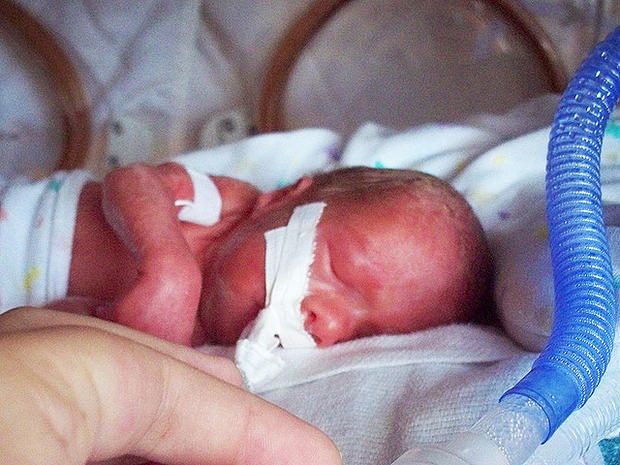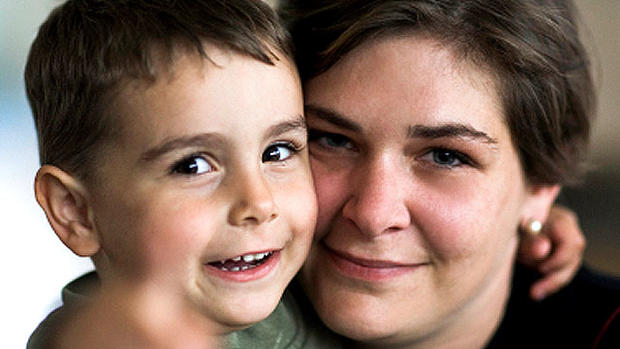Autism five times more common in low birth weight kids: Study
(CBS) Has another risk factor for autism been uncovered? A new study shows that low-birth weight premature infants are five times more likely to have autism than children who are born at a normal weight.
PICTURES: Autism-spectrum disorders: 24 warning signs
For the government-funded study - published in the Oct. 17 issue of Pediatrics - researchers tracked 862 children born in New Jersey between 1984 and 1987. All weighed 4.4 pounds or less at birth. Children were screened for autism at birth, ages 2, 6, 9, 16, and 21.
By the end of the study, five percent of the children developed autism, compared with 1 percent of the population over that time.
What explains the link? The researchers believe low birth weight plays a role based on previous research linking low birth weight to cognitive and motor difficulties. They said some of the early cognitive difficulties seen in these children may hide underlying autism.
"The number of children with a diagnosis of autism is on the rise and [we] haven't been able to explain why," study author Dr. Jennifer Pinto-Martin, director of the Center for Autism and Developmental Disabilities Research and Epidemiology at Penn Nursing in Philadelphia, told Health.com. "It's partly a function of awareness and better diagnosis, but we do a better job of keeping tiny babies alive and this may be one consequence of that."
What should concerned parents do? If they have a low birth-weight child, get them screened by a doctor as early as they can. The study authors suggest doctors aren't screening these children for autism early and often enough.
"Developmental screening is often something that is pushed to the side," Pinto-Martin told Health.com. "It's important that we do a really good job of screening every single child."
Pinto-Martin said the earlier a child is screened, the better off that child may be long term if they do in fact have an autism spectrum disorder. "Early intervention improves long-term outcome and can help these children both at school and at home," she said in a written statement.
About 1 in 110 children has an autism spectrum disorder. Boys are four to five times more likely to have autism.
The CDC has more on autism spectrum disorders.

